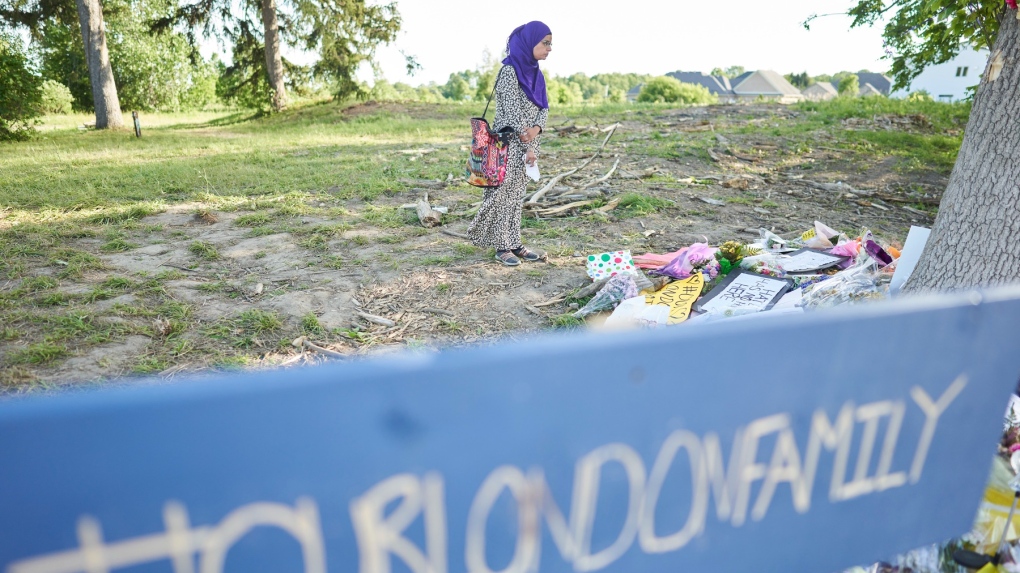The impact of hate crimes may have a ripple effect beyond the victims in Canada.
People who live in Canadian cities that have high rates of hate crimes were less likely to report positive physical and mental health compared with people in other parts of the country, according to Statistics Canada.
In a recent study released Thursday, Statistics Canada said it found that fewer Canadians (46 per cent) in these areas that saw more hate crimes reported "excellent or very good mental health" compared with other residents (50 per cent).
"Hate crimes affect more than just the individuals who experience them," StatCan wrote on its website. "Communities that identify with the individual may feel vulnerable and fearful that they could be targeted next. Beyond the targeted population, the effects of hate crimes may also negatively impact social cohesion and sense of belonging for other people living in affected areas."
The study explored the connections between police-reported hate crimes, and social impacts and trends.
The study generally found that areas with more hate crimes saw poorer scores for quality of life indicators. However, StatCan notes that the study didn't measure whether the poorer quality of life outcomes were caused by experiences related to hate crimes or contributed to conditions leading to hate crimes.
Rachel Tsitomeneas, an Ottawa-based analyst at Statistics Canada who worked on the report, said the findings are "statistically significant."
Tsitomeneas believes it was the first time Statistics Canada used quality of life indicators – used to measure how well Canadians are doing with income, health-care access, air quality, mental and physical health, among other criteria – in a study about hate crimes.
"Looking at all of these numbers (and) how many different quality of life indicators were lower in high hate crime areas, there has to be some sort of relationship," Tsitomeneas said in a phone interview with CTVNews.ca. "We can't say whether hate crimes cause bad quality of life, or bad quality of life causes hate crimes. We just know that it's a plausible relationship."
Among Canadians living in high hate crime areas, 51 per cent reported "excellent or good physical health" compared with 54 per cent of those in other cities.
What's more, StatCan found that fewer women and racialized people reported positive mental health in cities with high hate crime rates.
'Assault' on victim's identity
"Individuals subjected to hate crimes based on their race, ethnicity, religion, or a similar characteristic may experience heightened psychological distress," StatCan wrote on its website. "This is because such incidents represent an assault on a fundamental part of the victim's personal identity."
The study comes after the total number of hate crimes climbed to a record high of 3,576 incidents reported to police in Canada for 2022.
The rate of hate crimes nationally almost doubled in 2022 from 2019, with 9.2 incidents per 100,000 population in 2022 compared with 5.2 in 2019.
Elizabeth Simons, deputy director of the independent non-profit called the Canadian Anti-Hate Network, noted that the StatCan data is limited to police-reported hate crimes. "We know from previous General Social Surveys that the number of hate incidents dwarfs the number of hate crimes reported forward by police," she said in an email to CTVNews.ca.
Citing Statistics Canada, her organization's website said there were about 223,000 self-reported hate crimes in Canada in 2019, while law enforcement only reported 1,951 incidences, or less than one per cent of perceived hate crimes in 2019.
According to StatCan's new report, the six areas with the highest hate crime rates were the Ontario cities of Ottawa (28.3), Kingston (23.1), Kitchener–Cambridge–Waterloo (22.7), Hamilton (20.6), Greater Sudbury (18.7) and Brantford (16.4).
Tsitomeneas said the study didn't determine the reasons behind the high crime rates.
"Hate crime rates are affected by a whole bunch of different things. It's not just quality of life that impacts them or is impacted by hate crimes. It has to do with the income of a place," she said. "It's the ethnic makeup of a city. … Also how much resources police are putting towards hate crimes."
Hate crime motivations
In addition, the study found that race or ethnicity motivated more than half (55 per cent) of reported hate crimes in 2022.
It also determined that sexual orientation motivated 14 per cent of hate crimes that year.
In another finding, Canadians were less likely to know most or many of their neighbours (32 per cent) in areas with higher hate crime rates compared with other cities (38 per cent).
Regardless of the hate crime rate, StatCan found that 90 per cent of immigrant respondents in all the cities included in the study said they feel a "strong or somewhat strong sense of belonging" in Canada.
As well, men and people over age 50 said they felt a "notably stronger sense of belonging" in Canada in cities with higher hate crime rates than women and younger people, according to StatCan.
The study used data on police-reported hate crimes from the Uniform Crime Reporting Survey, which tracks all criminal incidents known to police in Canada. Hate crime numbers include both confirmed and suspected hate crime incidents, StatCan said. It also used information from the 2020 General Social Survey on Social Identity that was collected from Aug. 17, 2020, to Feb. 7, 2021, and portions of the Canadian Social Survey collected from August 2021 to December 2022.







































